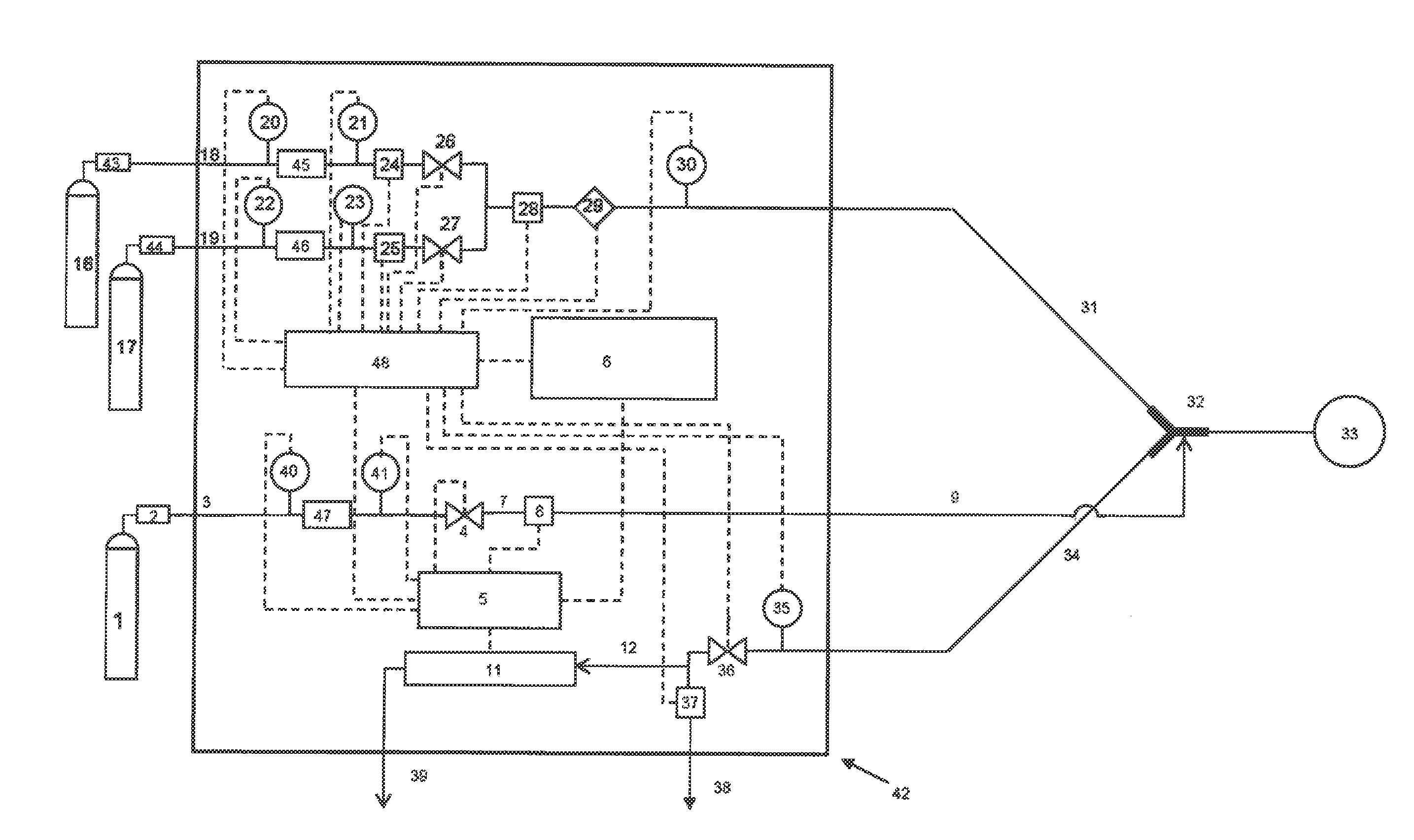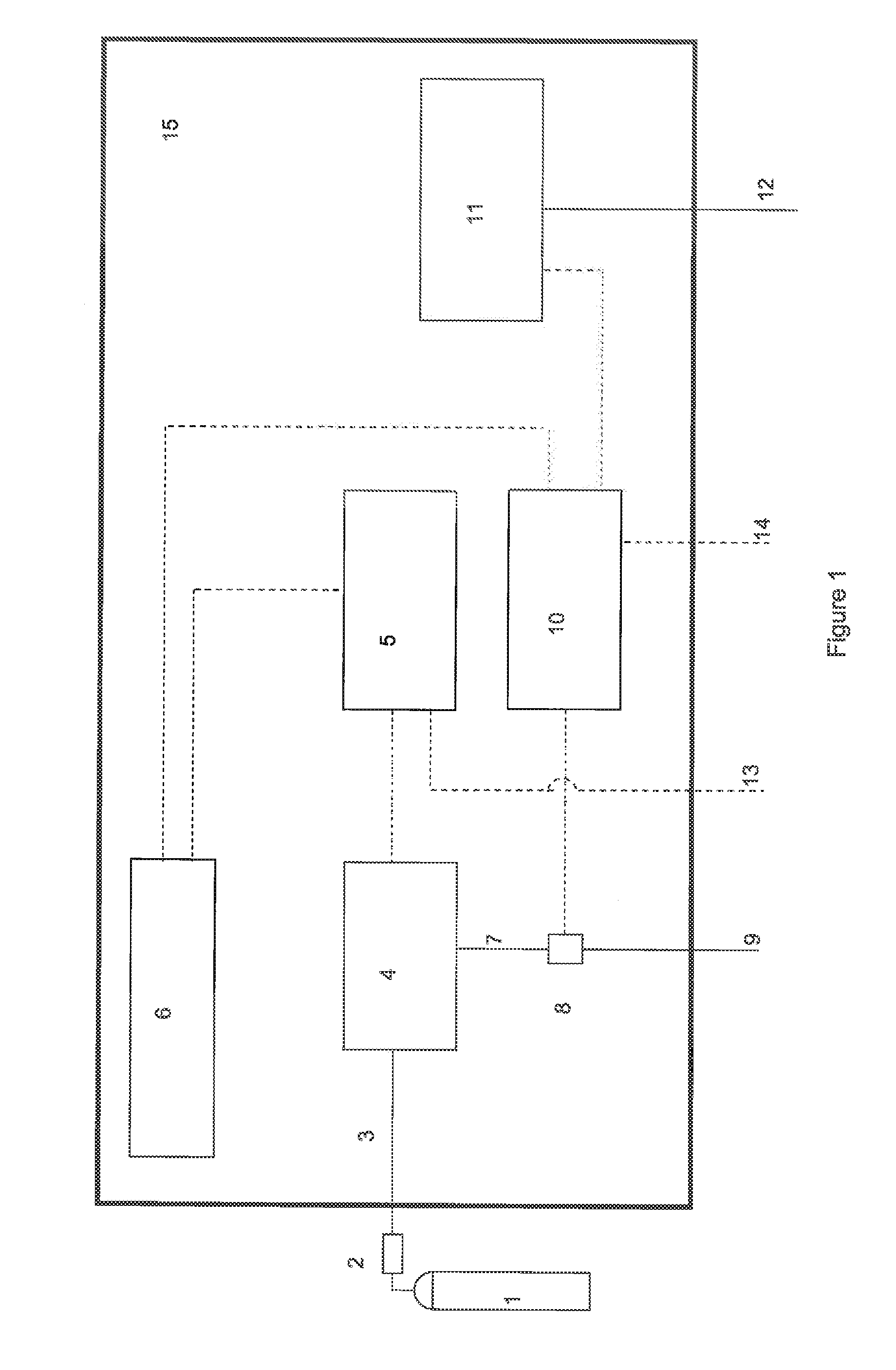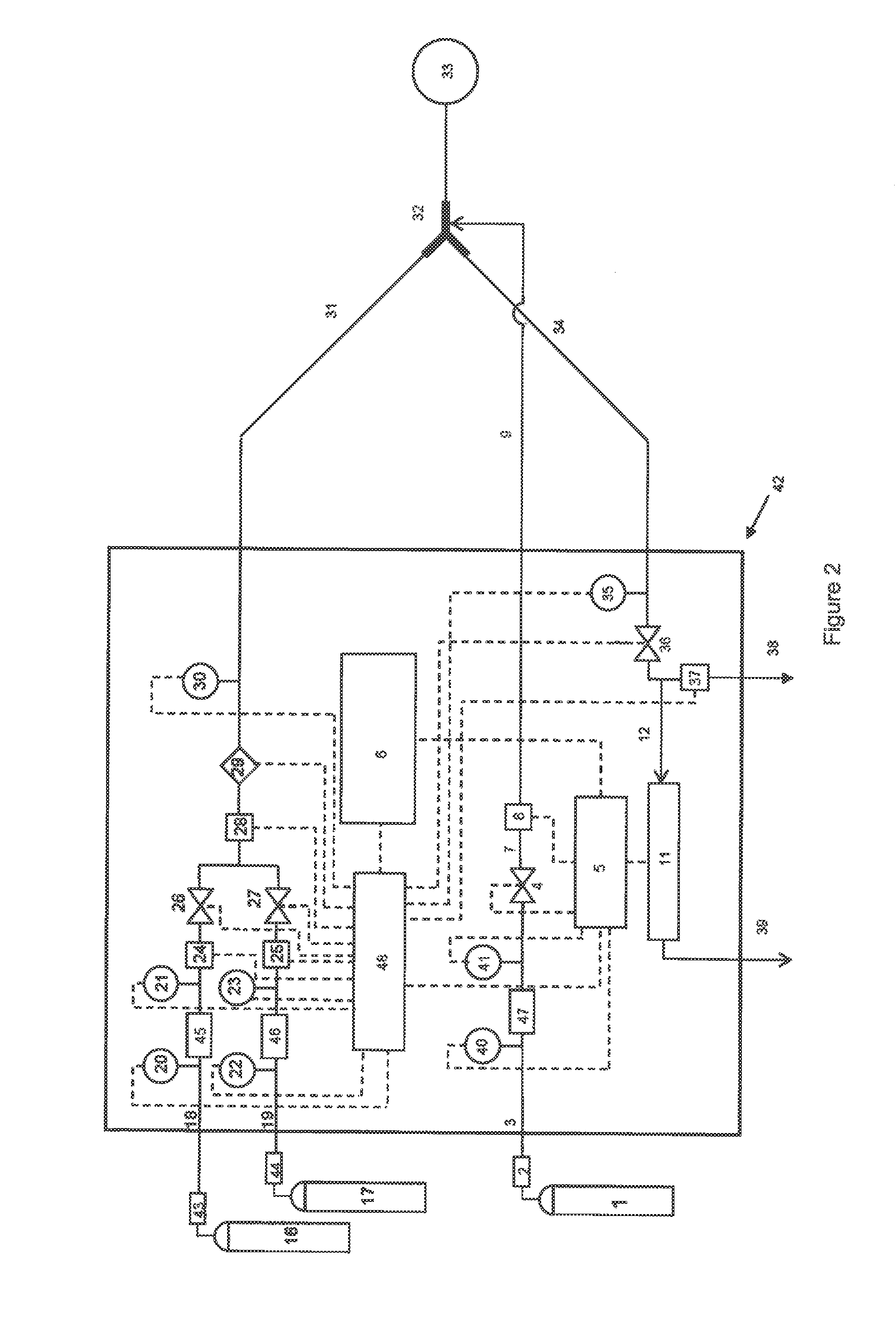Dosimetric therapeutic gas delivery system for rapid dose monitoring and control
a technology of dosimetry and gas delivery system, applied in the field of medical gas dosimetry and monitoring, can solve the problems of system differentiation, ultimately exhalation and waste, and complicating the optimization of dosing and weaning, as well as the strategy
- Summary
- Abstract
- Description
- Claims
- Application Information
AI Technical Summary
Benefits of technology
Problems solved by technology
Method used
Image
Examples
Embodiment Construction
[0061]In a preferred embodiment of the invention, a breathing gas mixture consisting of air and / or oxygen is delivered to a patient through a breathing circuit consisting of at least an inspiratory branch, an expiratory branch, and a Y-piece or other adapter which connects these two branches to the patient interface. NO is administered as a short-duration pulse or bolus timed to start with the onset of patient inhalation. NO-containing gas is injected into the breathing gas at a location close to the patient, for example between the Y-piece and the patient interface. The delivered flux of NO may be expressed in terms of mass, volume, or moles NO per unit time—if, for example, the delivered flux is expressed in terms of mass, the following calculation is made:
mNO,del=∫tt′CNO·ρNO·QNO / N2t(2)
where, mNO,del is the delivered mass of NO, CNO is the concentration of NO in the supplied NO-containing gas (typically between 100 and 1000 ppmv in nitrogen, and preferably 800 ppmv), ρNO is the de...
PUM
 Login to View More
Login to View More Abstract
Description
Claims
Application Information
 Login to View More
Login to View More - R&D
- Intellectual Property
- Life Sciences
- Materials
- Tech Scout
- Unparalleled Data Quality
- Higher Quality Content
- 60% Fewer Hallucinations
Browse by: Latest US Patents, China's latest patents, Technical Efficacy Thesaurus, Application Domain, Technology Topic, Popular Technical Reports.
© 2025 PatSnap. All rights reserved.Legal|Privacy policy|Modern Slavery Act Transparency Statement|Sitemap|About US| Contact US: help@patsnap.com



